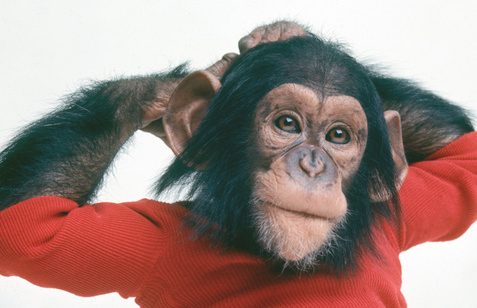Showing @ Cameo 1 @ 17:30 18 June & George Sq Theatre @ 18:00 20 June
It’s widely understood now that rather than being born as a tabula rasa people enter this world with an innate knowledge of language; the grammar, the meaning or ‘language faculty’ as linguist Noam Chomsky puts it. Based on firm notions of Darwinian evolution and survival of the fittest, these theories, whilst complex and by no means falling neatly on either side of the nature vs nurture debate, seem to explain our ability to communicate more or less to a satisfactory degree. Indeed, it’s our ability to have existential conversations, musings, create poetry, rap or stories that people believe separates us from animals, elevating us and giving us a feeling of false entitlement to dictate and control the lives of those we don’t understand whether cross-culturally or cross-species. Whilst the 1970s saw a huge serge and ethical freedom in psychological experiments, there’s one that stands out as a particular testament and demonstration of the extent of human desire to understand what makes us so different from our animal counter-parts: Project Nim.
Director of Man On Wire James Marsh and his team return with this unsettling tale of Nim the two-week old chimpanzee who’s ripped away from his mother and raised as a child, clothes and all, in a ‘scientific’ experiment to see if he could be taught how to communicate, on a meaningful level, with people.
As in Man On Wire, Marsh presents the story without bias or the presence of his own voice, yes the difficult questions are asked but the participants look as though they’ve just arrived at the thought themselves. It’s a necessary skill in documentary making and once more Marsh shows his exquisite ability in sucking out the darkest and most painful memories for people who aren’t proud of all they have done. With an eclectic mélange of archive footage the story of Nim unfolds so neatly and clearly with the constant commentary from the main-players. What emerges from Project Nim though, isn’t a simple test of whether or not chimps can communicate with humans, or indeed the nature/nurture debate; it’s the relationships between the people in Nim’s life and the helplessness of a creature who’s fate depends on the compassion and understanding of those around him, who ironically, considering the reasons behind the experiment, seem unable to understand one another let alone judge Nim’s abilities.
